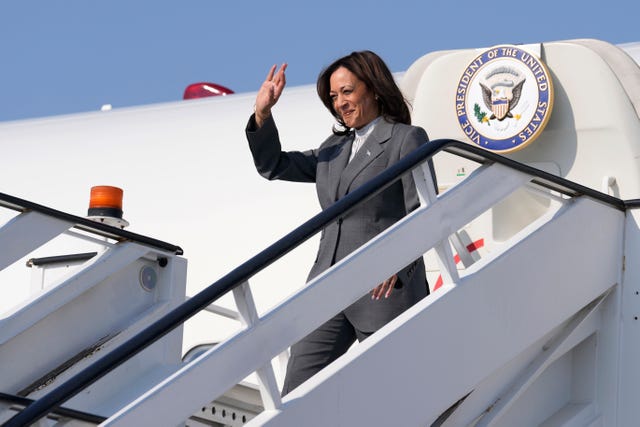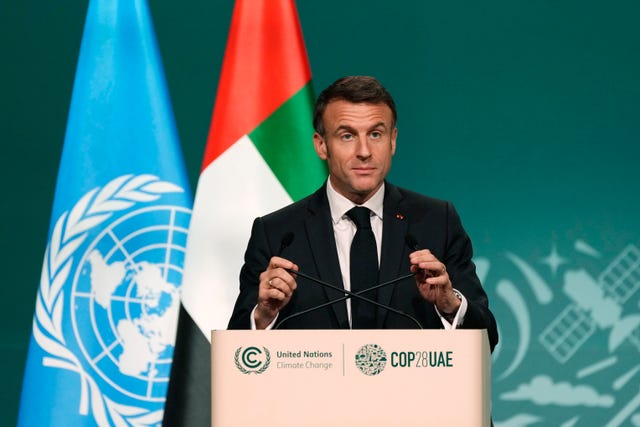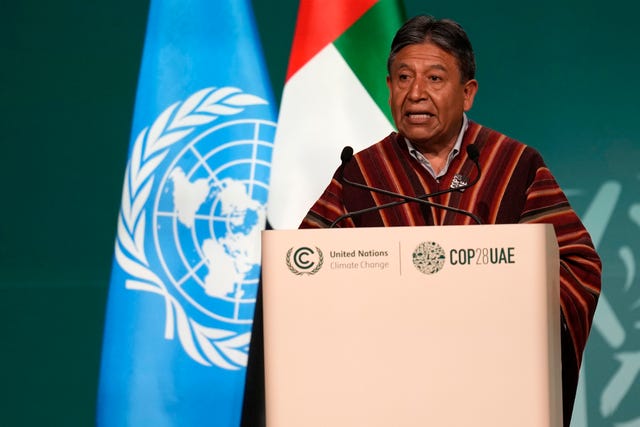Developing nations press rich world to fight climate change at Cop28 summit
African leaders noted their continent’s rainforests help remove excess carbon dioxide and their countries produce a tiny fraction of emissions.

Leaders of developing nations have used the second day of the UN climate summit to press rich industrial countries to share their knowhow to fight global warming and ease the financial burdens they face.
The annual United Nations Conference of the Parties, known as Cop28, in the oil-rich United Arab Emirates featured about 150 presidents, prime ministers, royals and other leaders who are presenting plans to cut heat-trapping emissions and mostly seek unity with other nations to avert climate catastrophe.
The developing world took centre stage early on Saturday, with vice president Kamala Harris of the US set to speak later.

Teodoro Obiang Nguema Mbasogo, of Equatorial Guinea — one of sub-Saharan Africa’s biggest oil producers — faulted developed nations for failing to deliver on commitments on financing for climate action and meet their own targets to curb industrial emissions.
“Africa is one of the regions in the world that sequesters the most carbon and emits oxygen,” he said.
President Jose Ramos Horta of Timor-Leste, next to Indonesia, condemned “shark loans” from multilateral lending institutions, saying developing nations cannot recover from heavy debt burdens that hamper their ability to put money into fighting climate change and grow economically.
Ms Harris’s appearance at Cop28 in Dubai marks the first time a vice president has led America’s delegation since Cop3 in Kyoto, Japan, in 1997, when Al Gore spoke. The US sent lower-level representatives from then until George W Bush’s presidency.
As Ms Harris made her way to the Dubai venue, US climate envoy John Kerry and French President Emmanuel Macron pushed for development of nuclear energy, which does not produce greenhouse gas emissions, even if it presents security and waste challenges.

“I want here to reiterate the fact that nuclear energy is a clean energy and it should be repeated,” said Mr Macron, which gets around two-thirds of its electricity from nuclear power, the most of any industrialised country, and even exports some of it to its neighbours.
A declaration issued at the event did not specify how much money should be set aside, but urged the World Bank and others to “encourage” expanding lending for nuclear projects.
Mr Kerry said: “We have to invest. I’m not saying give away. I’m saying invest the trillions of dollars that are sitting on the sidelines looking for bankable deals but not willing to move as fast as we need to move.”
Leaders almost universally voiced their shared views that Earth is in crisis — with the UN and environmental groups warning that the planet has recorded the nine hottest years on record over the last decade.
Pope Francis said “the destruction of the environment is an offence against God”, in a letter read on his behalf because he had to cancel plans to attend because of a lung inflammation.
The letter read by Vatican secretary of state Cardinal Pietro Parolin said almost all of the world that is “needy” is “responsible for scarcely 10% of toxic emissions, while the gap between the opulent few and the masses of the poor has never been so abysmal”.
“The poor are the real victims of what is happening: we need think only of the plight of Indigenous peoples, deforestation, the tragedies of hunger, water and food insecurity, and forced migration,” the letter said.

“The climate crisis is but the latest chapter in a long history of hypocrisy and lies. The global north is responsible for the global imbalance that we’re seeing. They seek permanent growth to the detriment of the global south.”
Worries are rising that the world is set to race past targets in the Paris climate accord of 2015 to cap the increase in global temperatures by the end of the century by 1.5C since the start of the industrial era.
In a passionate start on Friday, UN secretary-general Antonio Guterres, fresh from viewing melting glaciers in Antarctica and Nepal, said “Earth’s vital signs are failing” and told leaders: “You can prevent planetary crash and burn.”
In a direct challenge to fossil fuel-aligned nations, he said the only way to limit warming to the goal set in 2015 is by eliminating oil, coal and gas use. “Not reduce, not abate. Phase out,” he said.





